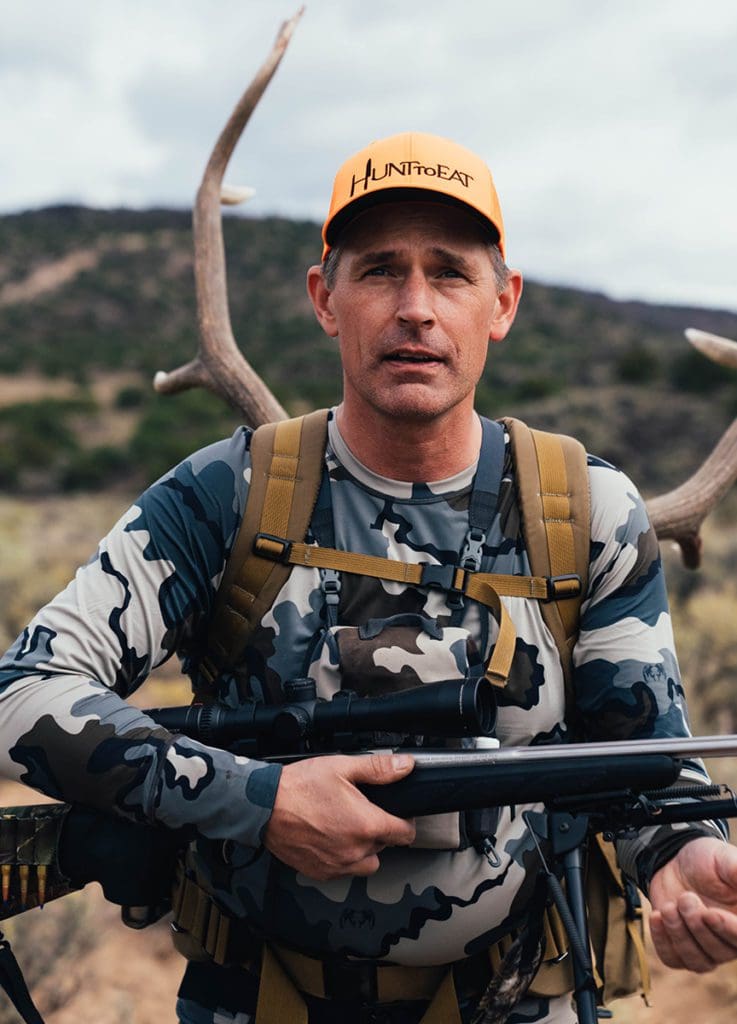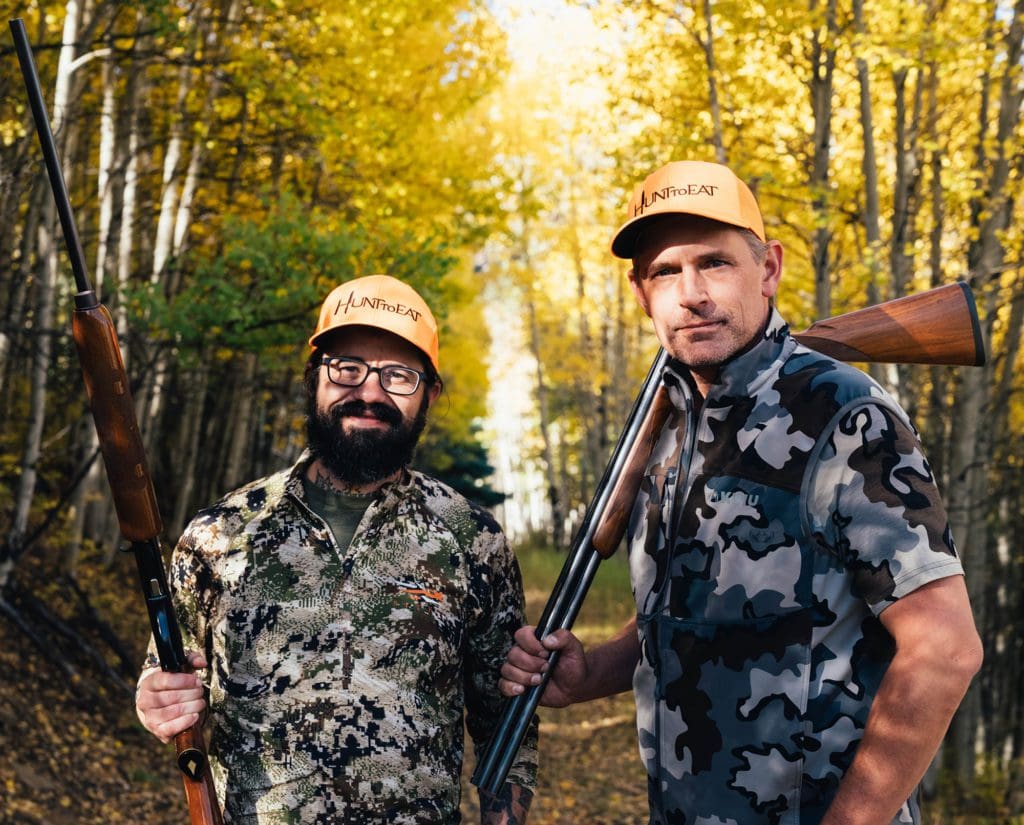Home » Hunting Policy » Recovering America’s Wildlife Act Reintroduced to the 118th Congress
Recovering America’s Wildlife Act Reintroduced to the 118th Congress

A.J. DeRosa, founder of Project Upland, is a New England…
This could be the most important piece of conservation legislation in our lifetime.
WASHINGTON, D.C. — Senator Martin Heinrich (D-NM) reintroduced the Recovering America’s Wildlife Act (RAWA) in the 118th Congress with Senator Thom Tillis (R-NC). Heinrich said, “This landmark bipartisan bill would make the largest, most significant investment in wildlife and habitat conservation in a generation.”
Last year, RAWA failed to pass the 117th Congress, but there is still hope that this unique, bipartisan conservation bill will bring an estimated $1.3 billion to $1.4 billion each year as an amendment to the Pittman-Robertson Wildlife Restoration Act (PR, 1937). Right now, PR funds sourced from excise taxes on firearms and ammunition are the largest source of wildlife management funding for state agencies. While continuing to put excise tax dollars to work, RAWA would increase conservation revenue streams; the “bill requires certain revenues generated from fees and penalties for violations of environmental requirements to be used as a source for the funding.”
Project Upland Magazine Hunts with Senator Heinrich and Talks RAWA
Smoke billowed from the cast iron as the fresh elk backstrap seared in the pan. The kitchen island was covered in a blend of processed and unprocessed elk meat from a bull shot on public lands a few days earlier.
My mouth watered as the piece was sliced on a cutting board ready for us to sample. For the better part of a week, I had wandered around New Mexico, tagging along on my first elk hunt, fly fishing the Rio Grande, and hunting duskies in the mountains. I am not quick to give up part of my October to anything outside ruffed grouse hunting, but the company I had been keeping for those days had made me roam outside my normal routine.
“We know what we need to do to create healthy forests, we don’t have the funding source to do it.”
That statement sums up who knows how many decades of fighting to reverse the decline of ruffed grouse across the American landscape. Normally, it’s a call for fundraising or a local effort of valiant volunteers far too long trying to fight the impossible. No one will ever say grouse hunters went quietly into the night.
But that sentence was spoken in a simple kitchen, by a hunter butchering his kill, who also happens to be a U.S. Senator—one well-read in the crisis of game birds across the country. Just the day before, we had a casual conversation about the ruffed grouse crisis in states like Indiana and we discussed what other parts of the country could follow in coming years.
Sen. Martin Heinrich (D-NM) was the sponsor of S. 2372, or the Recovering America’s Wildlife Act (RAWA), a piece of bipartisan legislation he put together from across the aisle with Missouri Senator Roy Blunt (R). Now reintroduced into the 118th Congress,
This bill is something Heinrich lives and breathes. And, I dare say, as far as direct conservation dollars going to game animals, this could be the greatest piece of conservation legislation since the Pittman-Robertson Act.
What will RAWA do?
This is ultimately about solving the biggest issue of modern conservation: money at the right time.
“This is a powerful tool for being able to intervene when you can really stretch a conservation dollar the farthest,” Heinrich said. “You have a lot more power to bring a species back and grow its population if you are not starting on the brink.”
To put it simply: it’s better for all parties involved, the species, private business, government, and hunters to have a clear funding source to address problems before they get too out of hand. Our current system does not put a clear funding foothold in key places, like for species of concern. That money is more than likely either taking away from game species conservation efforts or just doesn’t exist at all. The ultimate goal is to prevent things from becoming endangered well before they become endangered, ultimately reverse trends to increase native populations, and “recover America’s wildlife.”
The money of RAWA
“RAWA will create a sustainable funding source for state fish and game agencies, tribal wildlife agencies, partner conservation groups, and private landowners … $1.3 billion to $1.4 billion each year,” Heinrich explained.
These are some big figures, and of course one of my first questions was, “Where does the money come from?”
Heinrich has certainly thought this part of the bill out and was clear that raising taxes was not the answer.
“The money comes from court cases where there is a natural resource damage nexus,” he said.
In simple terms, when a natural resource is damaged, money in settlements will go to this fund. This makes this act a no-brainer and very bipartisan in nature as it will not strain the national debt or tax burden.
Why we need RAWA
“There are certain species that if they get below a certain threshold will disappear no matter what we do. That is what we saw with the Passenger Pigeon, it got below a certain population and it was no longer sustainable,” Heinrich said.
He stated this grim fact amongst discussion of birds still with us today—like the lesser prairie-chicken—that lack funding to put simple projects in place to stabilize populations, never mind recover them.

“For species like woodcock and ruffed grouse, just having a funding source to be able to address those species before they are on the endangered species list,” the senator added.
This is of very practical concern as, according to state and federal data, 19 states currently have ruffed grouse listed as a “species of concern” and Indiana added them to the state’s endangered list in 2020.
RAWA in practical use
One of the biggest issues facing the North American Model of Conservation, a socialized system, is that it is not inherently profitable. It is what makes our system so special, and albeit issues with decline, it is far superior to any other modern conservation effort in other countries.
When Heinrich first spoke on healthy forests and funding, he continued in explanation, “If there isn’t a direct profitable forest product for forestry activity but you are trying to maintain ruffed grouse habitat in the East you need funding. Oftentimes, the trees we are harvesting are not profitable trees. We do not have a way to turn them into sustainable income sources to do that management.”
Although the private sector of sustainable logging practices for wood and paper products has done good things for grouse management, that just isn’t enough in some places. This is a perfect example of when RAWA can help plug those gaps from public to private lands to maintain cohesive habitat. That is just for ruffed grouse.
READ: How Climate Change is Affecting Sharp-tailed Grouse
Species like the sage grouse, sharp-tailed grouse, prairie chicken, and even the spruce grouse could get help going forward. Shortgrass prairie, sage steppes, diverse forests; all habitat that stands to gain if this act passes.
What can we all do for RAWA?
I think we would be hard-pressed to find a hunter that wouldn’t support the Recovering America’s Wildlife Act as it will work for not just upland birds, but big game and other species alike. But we must first spread the information of RAWA throughout our communities, part of why we are presenting this article to our readers.
Below is a simple breakdown of what RAWA is:
- A direct and permanent funding source of $1.4 billion a year for habitat and conservation work.
- It will provide a clear and sustainable funding source for species well before they become endangered.
- The money is not the result of taxes but rather court damages around our natural resources.
- This money will be available to state fish and game agencies, tribal wildlife agencies, non-profits, and private landowners to create habitat and conservation opportunities.
- The goal is to plug the gap between species of least concern to endangered species by providing a clear funding source to prevent listings in the first place.
I asked the senator with a level of seriousness about whether reaching out to our congressional leaders and senators has any effect. And to be honest, if it were not for his answer, I would not even bother with our ultimate call to action.
“Having a constituent nexus, having people from your state or district, and it being clear that they care about this, that oftentimes is what motivates a senator or a congressman to join a bill or to make sure they at least support that bill when it comes up for vote,” he said.

Previous Updates on Recovering America’s Wildlife Act in the 117th Congress
Project Upland Media Group would like to acknowledge and thank Congresswoman Dingell, Senator Heinrich, and Senator Blunt for the profound effort and dedication they put into this piece of legislation in the 117th Congress. Your efforts to secure the future of our wildlife, including the critical issues that face upland birds, is truly appreciated.
December 20, 2022: In the final hours of negotiating the 2022 Omnibus package, RAWA failed to pass the 117th Congress despite some promising signs that this could move forward. We thank everyone for reaching out to their representatives and we plan to pick up the fight for the future upland game birds and its significance in this bill in the future.
April 7, 2022: The Senate’s version S.2372 – Recovering America’s Wildlife Act passed out of the Environment and Public Works Committee by a bipartisan vote, and now heads to the Senate floor for consideration.
A.J. DeRosa, founder of Project Upland, is a New England native with over 35 years of hunting experience across three continents. His passion for upland birds and side-by-side shotguns has taken him around the world, uncovering the stories of people and places connected to the uplands. First published in 2004, he wrote The Urban Deer Complex in 2014 and soon discovered a love for filmmaking, which led to the award-winning Project Upland film series. A.J.'s dedication to wildlife drives his advocacy for conservation policy and habitat funding at both federal and state levels. He serves as Vice Chair of the New Hampshire Fish & Game Commission, giving back to his community. You can often find A.J. and his Wirehaired Pointing Griffon, Grim, hunting in the mountains of New England—or wherever the birds lead them.




Thanks so much for highlighting this significant conservation funding legislation. Our state game agencies need the funding relief this bill provides. Dedicated wildlife conservation funding is critical to the future of hunting, fishing , wildlife and habitat and helps continue the evolution of the North American Model of Wildlife Conservation – a wildly successful, proven model.
Thanks for this piece, well done. I’m on board with RAWA and will press my reps/senators on this.
Heinrich is the real deal. I’ve hunted with him, before he was a senator. Wish he would run for pres.